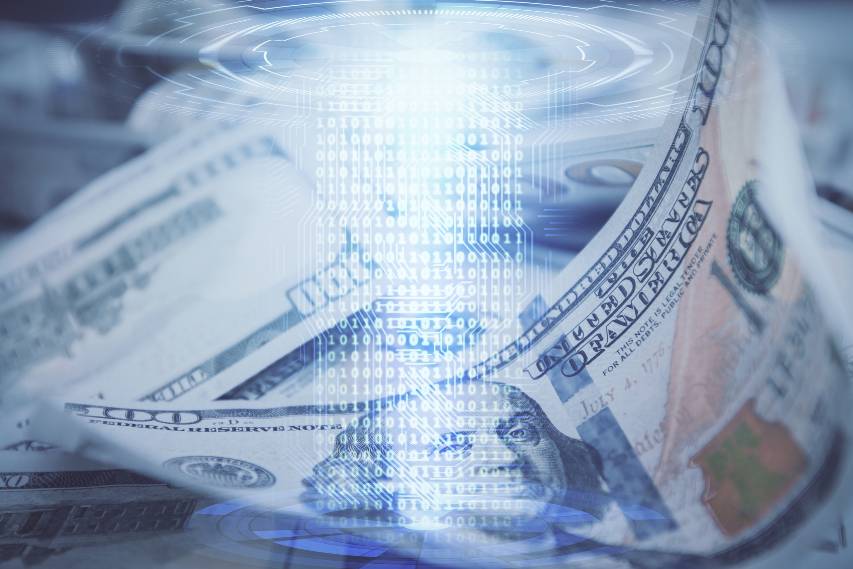Currency
Should The United States Start Using A Digital Dollar?

The United States government is seriously considering adopting a digital dollar version of the famed greenback. If this pushes through, this will be the dollar’s first major upheaval since its decoupling from the gold standard.
RELATED: US Still Undecided On Whether To Create Digital Currency
US Considering Adopting a Digital Dollar

If the US Federal Reserve gets the approval to adopt a digital dollar, it can now expand its minting capabilities. Apart from printing paper bills and minting coins, the central bank can now issue digital cash similar to another cryptocurrency.
Also known as central bank digital currency (CBDC), users can transact and store these CBDCs in apps or digital wallets.
Once loaded into a user’s smartphone, Americans can now use this paperless currency to pay for everyday items.
This is similar to many users paying via Venmo or Apple Pay. The only difference is that with CBDC, no actual physical money will change hands in the background.
Other Countries Are Doing It, Why Not The US?
Actually, the United States is already a bit late in the race to establish a cashless economy. Many other countries already started or are starting with their own digital currency.
For example, China already introduced the digital yuan on a trial basis. Even citizens from remote areas with spotty internet access can now pay for transactions using their digital wallets. In addition, India is launching this week their system for a digital rupee.
As for the US, it has yet to decide on whether it wants to join the game. Last January, the Federal Reserve released a much-anticipated white paper on its proposed digital dollar.
It laid out both advantages and disadvantages of implementing the digital dollar. However, the agency said that the paper is just an important first step to encourage conversation on the topic.
How Would A Digital Dollar Work?
Even as everything remains on the drawing board, the concept of digital dollars will stay the same as existing payment systems. The digital dollar would be no different compared to using your credit card or gateway systems like Venmo or Paypal.
The widespread availability of smartphones across the US provides a great vehicle for digital wallets.
As to why digital dollars are good for at least one thing. They can greatly reduce or even totally eliminate payment fees. Today’s cashless payment usually involves a user’s bank account and the seller’s bank account.
In many cases, an intermediary’s bank account will also involve itself. Each step of confirming amounts to each bank often entails transaction fees.
In 2020, transaction fees involved in US digital payments totaled $110 billion. Businesses shouldered the majority of the transaction fees.
Minimizing the Middleman
The digital theoretically eliminates the middleman. Buying an item means transferring your own money from your digital wallet to the cashier.
However, it wouldn’t necessarily eliminate the middleman altogether. For example, Chinese digital currency users can go to their local banks to add digital yuan to their wallets.
However, having digital dollars in circulation can pressure credit card companies and payment processors to lower their fees.
If enough Americans start using their digital wallets, middlemen will have to offer better rates to remain competitive.
Providing Digital Banking Services To Americans Without Bank Accounts
Another argument for pushing for the digital dollar is to provide digital banking opportunities to “unbanked” Americans. According to the Fed, around 5% of American households do not have any active bank accounts. Giving them a digital wallet can help them join the cashless economy.
Digital wallets will also help the government disburse benefits to many Americans faster and more efficiently. Americans with a digital wallet can receive stimulus benefits or refunds faster than waiting for a check.
Watch the BlazeTV video reporting that the Fed REALLY wants a Digital Dollar:
Do you support the creation of a digital dollar? Will this benefit you and your household? Let us know what you think.
Share your thoughts about the idea of a digital wallet. Leave your comments below.
















2 Comments
not in favor at all this will be a very bad thing. the government will be able to control your spending and know where you spend your money. Also every American will lose 40% of any money the currently have. When countries have changed currencies the existing currency was devalued by 40%. This info is available for all to see. you just have to read to find it.
When Nixon dropped our gold-dollar standard, we left the strongest currency condition You can imagine. I was very blessed to have been able to experience it while serving overseas. Now the current politicos want to shift to a digital system, What could go WRONG now. Call me old fashioned but it feels normal to reach into my pocket and pull change or bills out for a hot cup of coffee.Do the Federals really need to track me that much? Jefferson explained the loss of freedom as one small cut at a time. Who will be minding the minders?